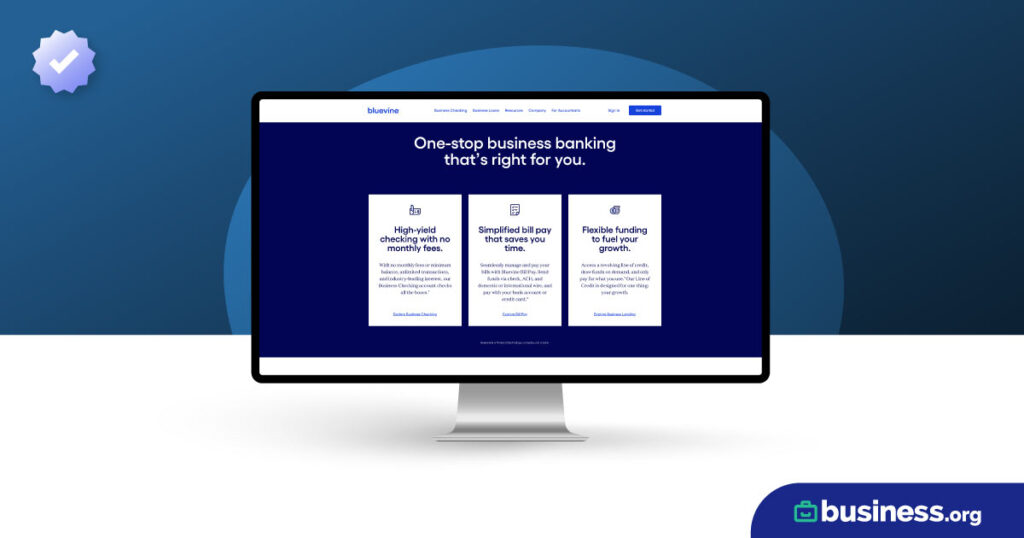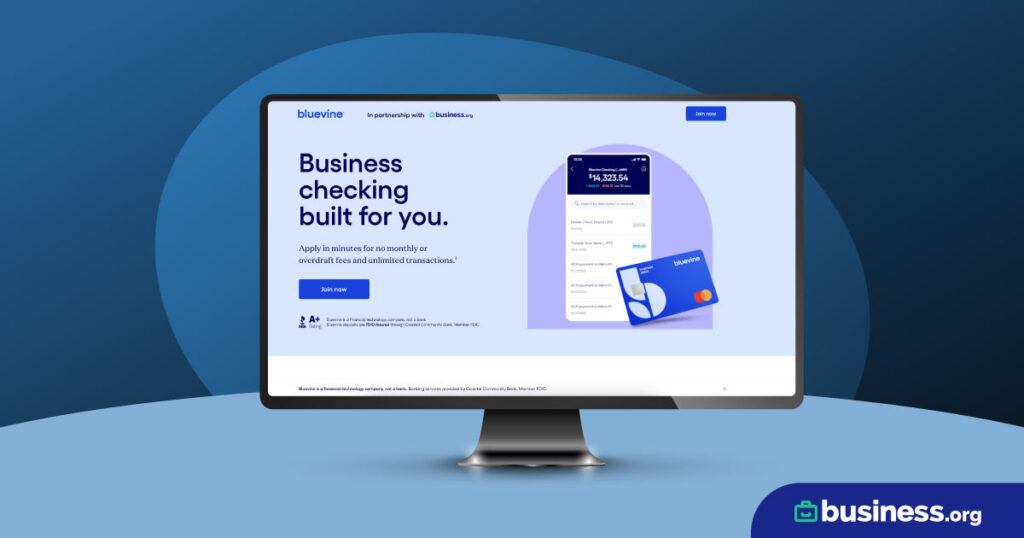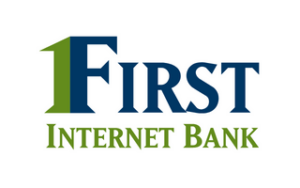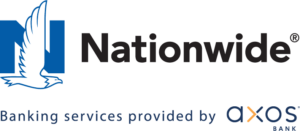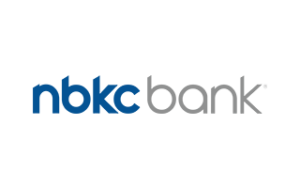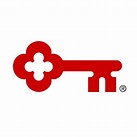We are committed to sharing unbiased reviews. Some of the links on our site are from our partners who compensate us. Read our editorial guidelines and advertising disclosure.
Best High-Yield Savings Accounts for Small Businesses 2025
Data as of 12/15/22. Offers and availability may vary by location and are subject to change.
The bottom line: Small Business Bank offers the best high-yield account for most businesses, thanks to its consistently competitive rates and lack of account fees. Below, we’ll tell you more about Small Business Bank and our other eight picks.
In theory, business savings accounts sound great. You get a secure place to store your hard-earned cash and earn interest at the same time. In practice, though, many business savings accounts have low, low annual percentage yield (APY), which makes it feel like the money in your bank account never really grows.
We know how frustrating that feels, so we went looking for business savings accounts that offer higher APY than most. We’ll tell you who offers these high-yield savings accounts, what makes them great, and what you need to consider before opening an account.
- : Best overall high-yield savings account
- : Highest savings rate
- : Best CDs
- : Most savings account options
- : Best money market
Compare the best high-yield savings accounts for business
Data as of 4/20/23. Offers and availability may vary by location and are subject to change.
How does a high-yield savings account work?
A high-yield savings account works just like a normal business savings account―just with a higher interest rate. You get to earn interest on your account balance (and you get FDIC insurance on your money too).
But while typical business savings accounts often have APY around 0.01%, high-yield savings accounts offer much higher APY―sometimes over 1%. Put simply, high-yield savings let you earn more interest with your money.
For the purposes of this article, we’re defining high-yield savings accounts as anything offering an APY of 0.05% or more (above average for business savings).
As you can see, we’re including both standard business savings accounts as well as money market savings accounts. (If you need a refresher on the differences between those kinds of accounts, check out our primer on the types of business savings accounts.)
Note that the ways you can access your account balance depend on whether you have a traditional savings account or a money market account. With a regular savings account, you usually can't use checks from your account. You can, however, use an ATM card (like a debit card that only works at ATMs) to withdraw money. A money market account, on the other hand, generally lets you use both checks and an ATM card to access your cash.
But either way, you can earn great interest rates with our picks.
Small Business Bank: Best overall
Data as of 12/15/22. Offers and availability may vary by location and are subject to change.
Small Business Bank (SBB) is our overall favorite source for high-yield business savings accounts (not too surprising since it also tops our list of the best banks for small business).
While SBB used to offer two savings account options, it now has just one: High Yield Savings. Fortunately, that one account is a good one.
It has no monthly maintenance fee, for starters―making this a free savings account. (Most other accounts on this list have some kind of monthly fee, though many let you waive it.)
Plus, interest rates vary, but Small Business Bank's APY soars up to 4.17%. And while Small Business Bank’s savings account interest rates have changed over time, it consistently offers the highest maximum rates of any bank we review.
As you might suspect, though, Small Business Bank’s saving account isn’t all peaches and cream. Small Business Bank earns increasingly low customer reviews, with lots of complaints about its mobile and online banking platforms. (It recently released a new mobile app, though, so hopefully that situation improves.)
That said, consistently high interest rates and a lack of typical bank account fees make Small Business Bank our favorite high-yield savings account for most business owners.
Lili: Highest savings rates
Data as of 12/15/22. Offers and availability may vary by location and are subject to change.
If you want top-notch rates no matter your savings account balance, you’ll like Lili.
Lili offers a 1.5% APY on all savings account balances. So from your very first dollar, you earn way more interest than you would from a traditional bank. Only Small Business Bank matches that interest rate―and only on very high account balances. As an added bonus, Lili offers excellent tools for freelancers (like a tax bucket and invoicing), and it earns better customer reviews than other banks on our list.
Keep in mind, though, that only sole proprietors and single-member LLCs can use Lili for business banking. And to get access to a Lili savings account, you need to pony up for the Lili Pro plan―complete with an unwaivable (though low) monthly fee. You also have to set up an automatic daily transfer into your savings account of at least $1 (which does make it easy to build a good savings cushion).
Still, Lili offers plenty of value. If you want the best rate on any balance, go with Lili.
By signing up I agree to the Terms of Use and Privacy Policy.
First Internet Bank: Best CDs
Data as of 12/15/22. Offers and availability may vary by location and are subject to change.
Want an even better rate than you can get from a high-yield savings account? Then check out First Internet Bank’s certificates of deposit (CDs).
First Internet Bank has competitive interest rates on its savings and money market accounts, but you can earn much more interest through its CDs. A short-term CD (three months) will get you a 2.00% interest rate, while a long-term CD (60 months) earns a whopping 4.39% APY. And there are plenty of term lengths and interest rates in between.
Of course, if you opt for a CD, you won’t be able to access your money for your chosen term length. So if you need access to your funds in the near future, you should probably stick with a standard or money market savings account. But if you can go even one year without touching your money, a First Internet Bank CD offers an unbeatable interest rate.
Simply put, First Internet has good business savings accounts―and superb certificates of deposit.
Axos Bank: Most savings account options
Data as of 4/24/22. Offers and availability may vary by location and are subject to change.
Axos Bank offers more choices for high-yield business savings accounts than any other bank we’ve seen. That means you choose the account that best works for your finances and needs.
If you don’t need to use checks, for instance, you can stick with Axos Bank’s Nationwide Business Premium Savings account. But if you do need checks, you can opt for the Business Money Market account instead. And if you have a nonprofit, Axos Bank has an account just for you: the Non-Profit Money Market account. And all the accounts earn a perfectly competitive 0.2% APY (for now).
Note, though, that Nationwide Business Premium Savings account has very high minimum deposit of $25,000. In other words, you’ll need a fair amount of cash stashed away to even open an Axos Bank savings account but you'll earn a high interest rate.
All the same, Axos Bank offers a great variety of savings accounts, all of which can earn you plenty of interest.
TIAA Bank: Another good money market account
Data as of 12/15/22. Offers and availability may vary by location and are subject to change.
TIAA Bank may not have the highest rate or lowest fees, but it still offers a solid money market account.
If you already like TIAA Bank (perhaps because you have a business checking account or do your personal banking there), we think you’ll like its business money market account too. You can earn up to 3.25%. While TIAA Bank doesn’t have stellar customer reviews, it does earn better reviews than many other banks on this list.
That said, TIAA Bank does have some flaws that keep it from being our favorite money market account―like the $1,500 minimum opening deposit. That’s one of the higher deposit requirements we’ve seen for high-yield savings, though it's not as high as Axos Bank's $25,000 requirement.
Even so, TIAA Bank’s business money market accounts have enough going for them to be one of our recommended picks.
Our top picks are all online-only banks. If you prefer using a brick-and-mortar financial institution, you’ll need to go with one of our honorable mentions―or a savings account that doesn’t offer a high yield.
Honorable mentions
The banks above have the highest interest rates for business savings accounts. But if you haven’t found something you like yet, we do have a handful of other high-yield savings accounts you might prefer.
- : Honorable mention
- : Honorable mention
- : Honorable mention
- : Honorable mention
Compare honorable mention high-yield savings accounts for business
Data as of 12/15/22. Offers and availability may vary by location and are subject to change.
Capital One
Data as of 12/15/22. Offers and availability may vary by location and are subject to change.
Capital One has a business savings account with a low and easily waivable monthly fee―plus a decent introductory APY.
Unlike other banks on this list, Capital One guarantees your interest rate for the first 12 months. So even if interest rates fall generally, you’ll get 0.2% APY for a full year. And while this account does have a monthly fee, it’s super low and you can waive it with a balance of just $300.
Of course, there’s no guarantee for what kind of rate you’ll get after those 12 months―and Capital One doesn’t publish its usual interest rates. All the same, Capital One’s rate lock makes it a bank worth considering.
NBKC Bank
Data as of 12/15/22. Offers and availability may vary by location and are subject to change.
NBKC Bank offers a totally free money market account. Don’t be fooled by the low price tag though―this account can compete with much pricier accounts.
NBKC’s money market account doesn’t require any minimum opening deposit, and it doesn’t charge a monthly fee. You just need to have a free NBKC business checking account (which does have a minimum opening deposit―of $5) , and then you can add on a free money market account.
Unfortunately, NBKC’s great interest rates have fallen a lot in the last couple years. Are they still higher than you can get from most banks? Definitely. But are they high enough to pick NBKC over our recommended banks above? Well, that’s for you to decide.
KeyBank
Data as of 12/15/22. Offers and availability may vary by location and are subject to change.
If you don’t already have a checking account and credit card with KeyBank (or you don’t plan to get one), then you don’t need to waste your time with KeyBank’s high-yield savings account.
That’s because KeyBank only offers high APY for customers who qualify for the KeyBank Relationship Rate. That means you need to have a business checking account, business credit card (or other payment product), and a loan or line of credit―all from KeyBank. It’s a lot.
If you do all that, you can earn an okay (but not outstanding) 0.05% interest rate. Like we said―maybe worthwhile if you already use KeyBank, but not worth switching banks for.
Santander
Data as of 12/15/22. Offers and availability may vary by location and are subject to change.
Much like KeyBank, Santander isn’t right for everyone. It offers fair, but not exceptional, APY.
That said, if you already bank with Santander, opening a money market account there isn’t the worst choice you could make. It offers a decent promotional APY on new accounts (though you’ll need a whopping $50,000 account balance to get that promotion), so it can be a good way to earn more while still keeping your money in one bank.
So while it’s not our first pick for high-yield business savings, Santander customers might like the convenience of keeping their accounts together―even if it means settling a little.
The takeaway
Small Business Bank offers the best high-yield interest savings account for most businesses, thanks to its stellar rates and no-fee accounts. But if that doesn’t work for you, one of our four other recommended banks should.
Lili offers the highest interest rates out there for account balances from $1 to $100,000. First Internet Bank can hook you up with sky-high interest rates on certificates of deposit. Axos Bank lets you choose between several different high-yield account options. And TIAA Bank offers another solid money market option.
So while your options are somewhat limited (simply because most banks don’t offer high interest savings for business), we hope one of the banks above can meet your business’s needs―and help your money grow and grow.
Interested in a new checking account to go with your new savings account? Find one on our rankings of the best banks for small-business checking.
Related reading
Methodology
To get our rankings of the best high-yield savings account for business, we first analyzed business savings accounts at more than 30 banks (including online and traditional banking options). We narrowed things down to banks that offered APY of 0.05% or above, and then scored them on factors such as their interest rates, account fees, and customer reviews.
High-yield savings accounts for business FAQ
Yes, a business can absolutely use a high-yield savings account. All nine of our picks above offer high-yield savings accounts just for businesses.
Interest rates fluctuate, so a good APY can change over time. Right now, the most competitive banks for business offer APY over 0.3%. But generally speaking, anything over 0.1% is already way above what you’d earn with most savings accounts.
What is the highest paying high-yield savings account?
The highest paying high-yield savings account we’ve found for businesses would be either Small Business Bank or Lili’s savings accounts.
How often do high-yield savings rates change?
The rates on high-yield savings accounts can change pretty much any time, but the frequency depends on the bank you use. Many, if not most, banks tie their rates to the Federal Reserves’ Federal Funds Rate, which means they adjust their rates when the Fed does. Again, the actual frequency with which this happens can vary, but many banks adjust their rates on a monthly schedule.
How much should I put in my high-yield savings account?
You can put as much or as little money in your high-yield savings account as you want―as long as you meet any minimum balance requirements your bank has.
Many banks require a certain minimum deposit to open a savings account (often $100 or more), and some also require you to keep a minimum balance if you want to earn interest.
Of course, the more money you put in your savings accounts, the more interest you’ll earn.
Disclaimer
At Business.org, our research is meant to offer general product and service recommendations. We don't guarantee that our suggestions will work best for each individual or business, so consider your unique needs when choosing products and services.
